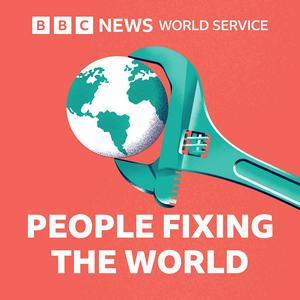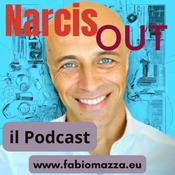466 episodi
- Wild horses have been roaming public lands in the American West for over a century but their population numbers are far greater than what is considered an appropriate management level. This is causing ecological damage and strains on natural resources, in addition to concerns about the horses' health. This has become a deeply contentious and emotive issue. We head out into the desert, driving 100s of miles across the mountains and plains of Nevada and California, to witness first hand how different stakeholders are putting their differences aside and coming together to find innovative solutions.
- The Igba Boyi apprenticeship scheme, described as the world's largest business incubator, has helped the Nigerian Igbo people build generational wealth in the devastating aftermath of the Civil War.
The scheme involves a master mentoring an apprentice who, upon graduation, is "settled" with start-up funds and contacts to launch their own business.
BBC Reporter Chiagozie Nwonwu explores this vital tradition and why it is now at risk of fading out in modern Nigeria. - Could AI technology help the fashion industry get to grips with sustainability, and arrest its brutal impact on the planet? With a huge carbon footprint, vast water usage and filling up of landfills, the fashion industry’s impact is well documented. But companies throughout the supply chain have rolled out tech solutions, many of them AI powered, to address these issues. How effective are they? At the growing stage, AI apps are being used by farmers to grow regenerative cotton. Other companies are using such tech to optimise orders, reducing the amount of garments that go straight to landfill. AI powered machines are detecting defects at the manufacturing stage and retailers are using it to help their customers make more informed choices. Fashion journalist Brooke Roberts-Islam follows a pair of jeans across the full fashion supply chain. Through showcasing technological advancements along the way, this one garment helps us to explore the possibilities and limitations of AI in improving the industry’s environmental record. We visit a cotton farm in India, where AI tools help to reduce water and pesticide use; in Bangladesh, algorithms in garment factories prevent waste through identifying defects in materials and retailers in the West are providing their customers with detailed information on the materials used in each product. The programme will also consider AI’s limitations and the negative implications of relying on such technology, such as the energy demands of generative AI.
Featuring contributions from Kuldeep Khatri, director of nature at Materra; Max Easton, CEO of Smartex; and Andrew Xeni, founder of the ethical retailer Nobody’s Child.
Sound design: Jarek Zaba
Producer: Jarek Zaba
Presenter: Brooke Roberts-Islam
A 2 Degrees West production - 8% of Swedish adults say they have no close friends, according to one survey. But a wave of innovative projects is trying to change that. From buddy schemes to corporate “friendship hours” and grassroots social clubs, we explore how adults are going about enhancing their social lives — and what other nations might learn.
People Fixing The World from the BBC is about brilliant solutions to the world's problems. We release a new edition every Tuesday. We'd love you to let us know what you think and to hear about your own solutions. You can contact us on WhatsApp by messaging +44 8000 321721 or email [email protected]. And please leave us a review on your chosen podcast provider.
Presenter: Myra Anubi
Reporter/producer: Maddy Savage
Editor: Jon Bithrey
Sound mix: Annie Gardiner
(Image: Minttu and Yashu who met through Kompis Sverige, Maddy Savage/BBC) - Presenter Myra Anubi and the team chat about some of their favourite projects that have been covered on People Fixing The World over the last twelve months, from radioactive rhinos in South Africa to the Buz Stop Boys cleaning up streets in Ghana.
People Fixing The World from the BBC is about brilliant solutions to the world's problems. We release a new edition every Tuesday. We'd love you to let us know what you think and to hear about your own solutions. You can contact us on WhatsApp by messaging +44 8000 321721 or email [email protected]. And please leave us a review on your chosen podcast provider.
Presenter: Myra Anubi
Producer: Louise Pepper
Editor: Jon Bithrey
Sound mix: Hal Haines
(Image: The People Fixing The World team at the BBC - from left to right, Richard Kenny, Natasha Fernandes, Claire Bowes, Louise Pepper, Katie Solleveld, Myra Anubi, Claire Bates, Jon Bithrey, copyright BBC)
Altri podcast di Salute e benessere
Podcast di tendenza in Salute e benessere
Su People Fixing the World
Brilliant solutions to the world’s problems. We meet people with ideas to make the world a better place and investigate whether they work.
Sito web del podcastAscolta People Fixing the World, Un passo al giorno e molti altri podcast da tutto il mondo con l’applicazione di radio.it

Scarica l'app gratuita radio.it
- Salva le radio e i podcast favoriti
- Streaming via Wi-Fi o Bluetooth
- Supporta Carplay & Android Auto
- Molte altre funzioni dell'app
Scarica l'app gratuita radio.it
- Salva le radio e i podcast favoriti
- Streaming via Wi-Fi o Bluetooth
- Supporta Carplay & Android Auto
- Molte altre funzioni dell'app


People Fixing the World
Scansione il codice,
scarica l'app,
ascolta.
scarica l'app,
ascolta.






































